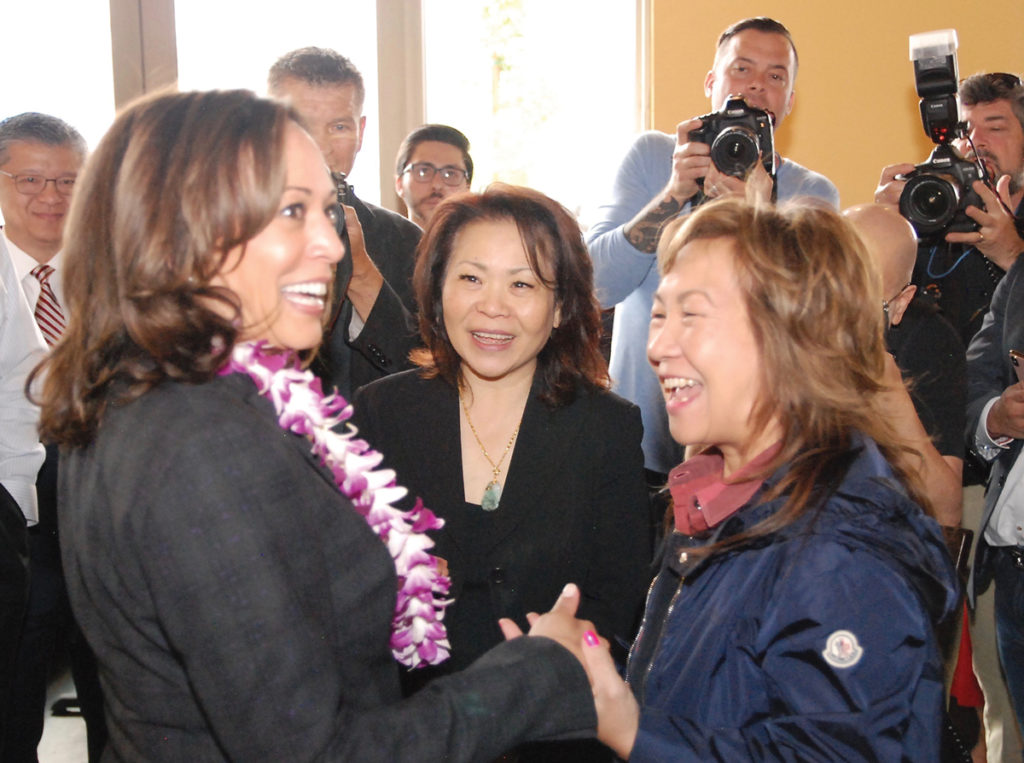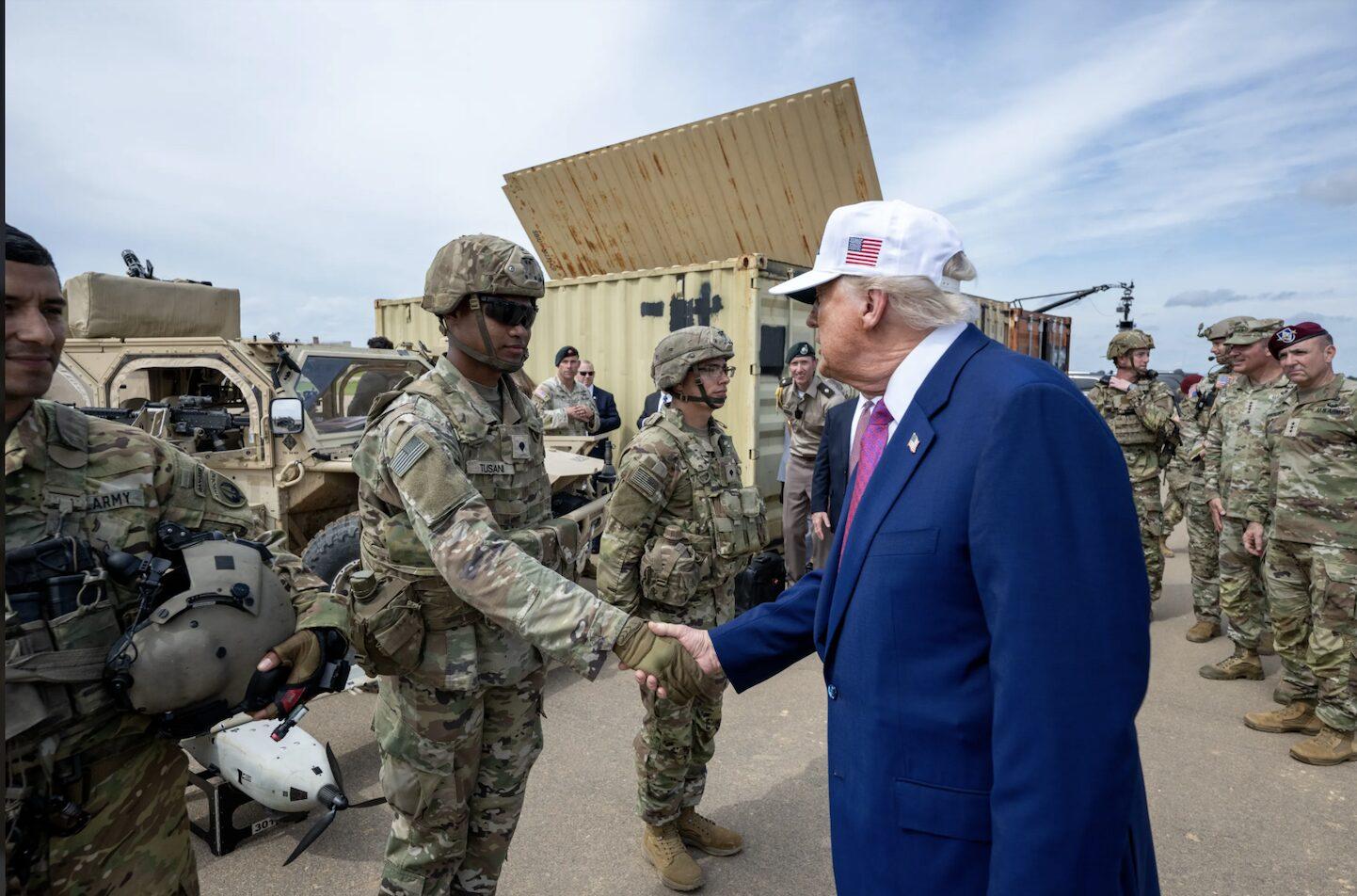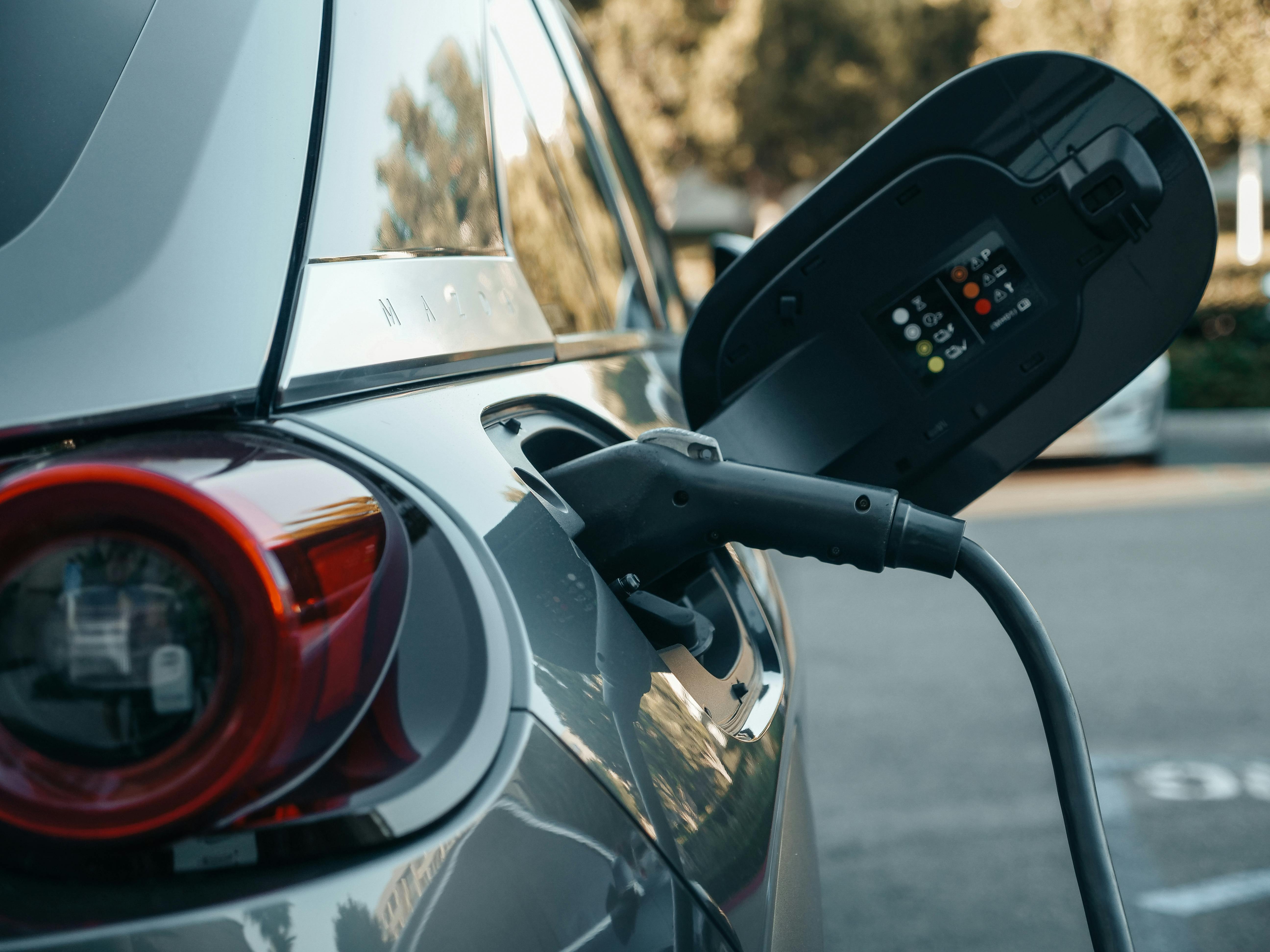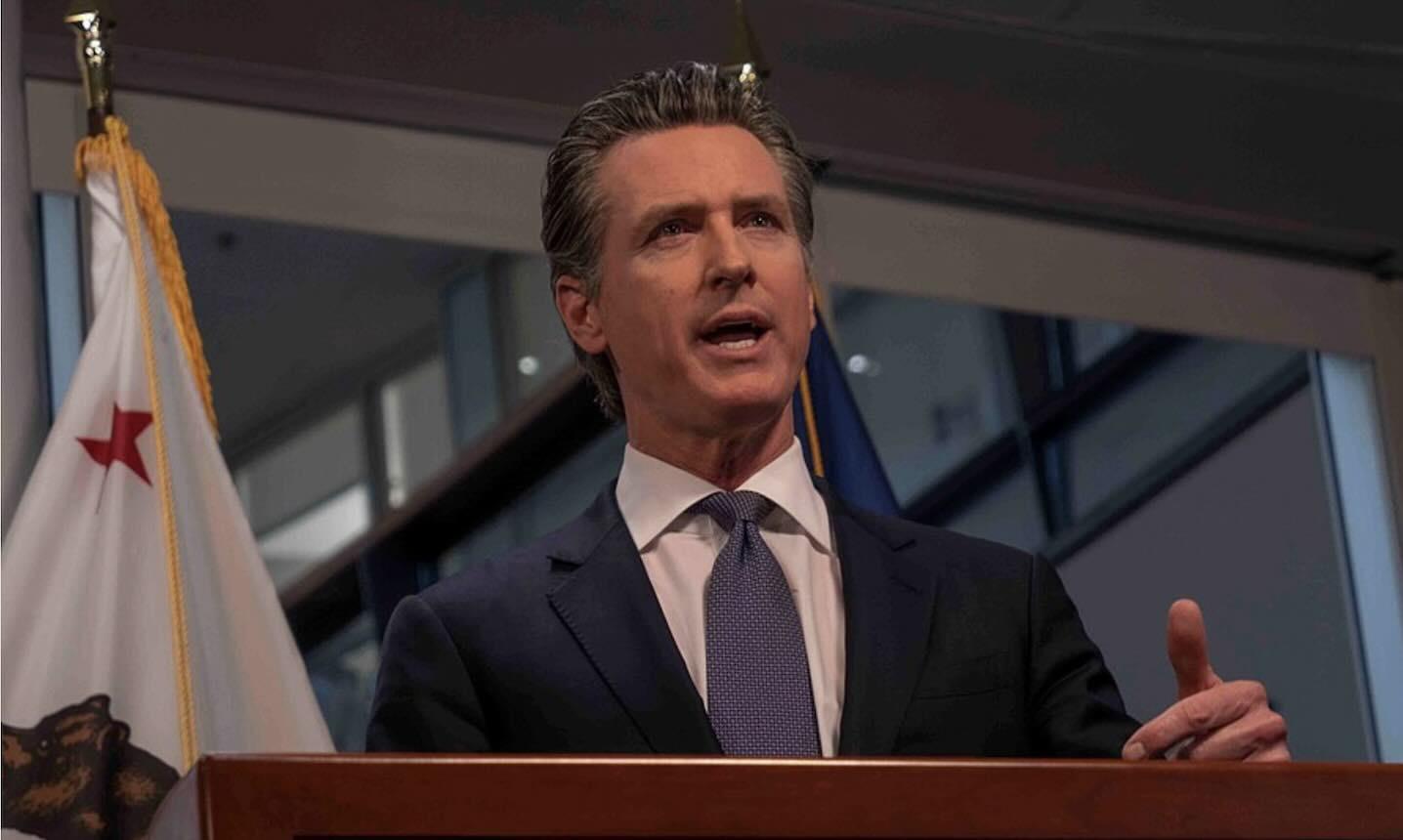CALIFORNIA Senator Kamala Harris denounced the rise of anti-Asian violence and discrimination in the United States and called on more protections for vulnerable populations, including front-line workers.
Harris, the first South Asian American senator, said she’s confronted members of the Trump administration on its usage of calling the coronavirus, the “Chinese Virus” or “Wuhan Virus,” which in part has sparked the anti-Asian sentiments since the virus broke out.
“It’s fueled the hate for the president of the United States to continue to insist on calling it, the Wuhan Virus or the China/Chinese virus. It is absolutely irresponsible. It is born out of ignorance,” the senator told the Asian Journal, adding that the pandemic is amplifying existing racism and disparities. “This is just another example of the absence of leadership by this president. This should be a moment when he should be saying, ‘We’re all in this together’ and treat each other with kindness and respect.”
President Donald Trump seemingly backtracked on his words when he tweeted on March 23: “It is very important that we totally protect our Asian American community in the United States, and all around the world. They are amazing people, and the spreading of the Virus…is NOT their fault in any way, shape, or form. They are working closely with us to get rid of it. WE WILL PREVAIL TOGETHER!”

Many lawmakers and community leaders, however, say the president’s message is too late as hundreds of acts of violence and discrimination continue to be reported on a daily basis.
The FBI said it anticipates incidents to increase against Asian American communities “based on the assumption that a portion of the U.S. public will associate COVID-19 with China and Asian American populations.”
The STOP AAPI HATE Reporting Center — an initiative founded by the Asian Pacific Policy & Planning Council (A3PCON), Chinese for Affirmative Action (CAA) and San Francisco Asian American Studies Department — said that over 750 incidents were documented during a 12-day period.
“What we have to do as leaders is remind people, they are not alone and encourage them to report these crimes because they are crimes and that we have to advocate to say there needs to be investigation and prosecution,” Harris said.
With stay-at-home orders and social distancing in place, many Asian Americans may feel isolated and more fearful to speak up about such incidents. New York state has set up a hotline, while Los Angeles County encourages residents to call 2-1-1 to report. Harris also urged other state attorneys general to follow suit and establish their own lines.
The senator also lauded her home state and the local elected officials in cities and towns who enacted orders to slow the spread of the virus early on.
California now has 8,700 coronavirus cases as of Wednesday, April 1, according to the Johns Hopkins University CSSE tracker. However, in San Francisco County only a total of 374 cases have been confirmed, which officials say is a testament to the distancing measures taken.
“We now know it was one of the smartest things that could have been done because… we’re hearing back that San Francisco, as an example, is one of the areas that is not being overwhelmed in terms of bed capacity and hospitals,” Harris said.
The historic bipartisan $2.2 trillion stimulus bill passed in Congress and signed by Trump on Thursday, March 26 was a start in providing relief with key provisions giving most Americans $1,200 and expanding unemployment insurance to self-employed individuals.
Governor Gavin Newsom reported that 1 million Californians have filed for unemployment since March 13. The state offers $450 per week of unemployment insurance, while the Senate bill adds $600 per week up to four months.
The plan also provides emergency grants up to $10,000 for small businesses to cover operating costs and $350 billion for the Small Business Administration to provide up to $10 million in loans.
“As we go forward, one of my biggest areas of focus is going to be on supporting small business owners, especially in the Asian community, as well as so many others. It’s a family business, it’s intergenerational. It represents an economic lifeblood, not only for the family, but for the community,” Harris said.
The plan allocates a $150 billion fund for the health care system so hospitals can purchase masks, ventilators and other necessary equipment as more patients come in.
However, the senator said the relief package falls short in addressing other issues, such as paid sick leave for front-line workers.
“[The bill] was a function of the urgency of the moment, but it really was not sufficient. That’s actually why I have not come home and I’m still in DC working on the next phase of this,” she said.
“Our Filipino community is being very hard hit [with] a lot of health care workers on the front line,” Harris said, adding that more follow up legislation needs to expand on more support. “Also things like helping to pay for childcare for those essential workers…[and] looking at other ways that they can be supported in what is actually required of them to go to work every day and leave their homes.”
With the pandemic, it’s also opened up a bigger conversation on the need for systemic changes, whether health care coverage for all Americans or the capacity of federal disaster response.
Harris made a plea for Californians to fill out their 2020 Census form, as the data helps determine how federal funds are allocated to each state, and to vote in the upcoming election this fall.
“Who holds these positions matters in times like this,” Harris said. “We have to make sure that we have elected representatives who understand the community…and who speak up for the community. No one should be made to fight alone, we’re all in this together.”







